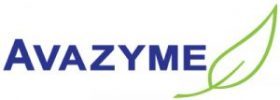 Avazyme-Sponsored Science Festival Sparks Young Minds. Many scientists today reflect on their childhoods, often crediting early experiences with sparking their passion for science. Research indicates that ages 10 to 14 are crucial for children to form their perceptions of science as a viable path. Engaging with science—both in and out of school—during this formative period can significantly influence their motivation to pursue science careers or enroll in voluntary science classes later. Those who participate in informal science education are believed to be more likely to sustain a lifelong fascination with the subject. However, the lack of diverse representation in the field can hinder scientific innovation and has broader economic implications for underrepresented groups. Pervasive stereotypes about scientists—such as the notions that they possess innate brilliance, are solitary and introverted, or have a “special science brain”—can deter children who do not see themselves reflected in these images from envisioning a future in science. In celebration of National Chemistry Week (NCW), a public awareness campaign highlighting the importance of chemistry in everyday life, the Chemistry Graduate Student Association (CGSA) at North Carolina State University (NC State) organized a Science Festival at Dorothea Dix Park on October 19th. The event aimed to engage the public, particularly elementary and secondary school children, with positive messages about chemistry. Over 100 volunteers came together to promote the relevance of science through interactive, hands-on activities. More than 300 children and attendees explored over 30 tables and 18 activities, where they participated in experiments, learned about scientific concepts, and were encouraged to ask questions. At one table, CGSA members from Professor Jonathan Lindsey’s research lab demonstrated photosynthesis by showing attendees how plant leaves contain chlorophyll, which captures sunlight to help plants produce food. Kids had the opportunity to extract chlorophyll from fresh spinach and observe its red fluorescence. The event also featured hourly “elephant toothpaste”
Avazyme-Sponsored Science Festival Sparks Young Minds. Many scientists today reflect on their childhoods, often crediting early experiences with sparking their passion for science. Research indicates that ages 10 to 14 are crucial for children to form their perceptions of science as a viable path. Engaging with science—both in and out of school—during this formative period can significantly influence their motivation to pursue science careers or enroll in voluntary science classes later. Those who participate in informal science education are believed to be more likely to sustain a lifelong fascination with the subject. However, the lack of diverse representation in the field can hinder scientific innovation and has broader economic implications for underrepresented groups. Pervasive stereotypes about scientists—such as the notions that they possess innate brilliance, are solitary and introverted, or have a “special science brain”—can deter children who do not see themselves reflected in these images from envisioning a future in science. In celebration of National Chemistry Week (NCW), a public awareness campaign highlighting the importance of chemistry in everyday life, the Chemistry Graduate Student Association (CGSA) at North Carolina State University (NC State) organized a Science Festival at Dorothea Dix Park on October 19th. The event aimed to engage the public, particularly elementary and secondary school children, with positive messages about chemistry. Over 100 volunteers came together to promote the relevance of science through interactive, hands-on activities. More than 300 children and attendees explored over 30 tables and 18 activities, where they participated in experiments, learned about scientific concepts, and were encouraged to ask questions. At one table, CGSA members from Professor Jonathan Lindsey’s research lab demonstrated photosynthesis by showing attendees how plant leaves contain chlorophyll, which captures sunlight to help plants produce food. Kids had the opportunity to extract chlorophyll from fresh spinach and observe its red fluorescence. The event also featured hourly “elephant toothpaste”
demonstrations, where volunteers in lab coats, goggles, and gloves showcased the reaction between hydrogen peroxide and potassium iodide, resulting in a dramatic, foamy eruption as oxygen gas was trapped by dish soap.
The CGSA Outreach Committee successfully raised over $6,000 in sponsorships, organized more than 100 volunteers, planned engaging science activities, and gathered raffle prizes, including a year-long family membership to the North Carolina Zoo. Their efforts exemplify the NC State Department of Chemistry’s commitment to enhancing the visibility and accessibility of science and nurturing the next generation of scientists, and
they look forward to building on this annual event in the years to come. The event was graciously sponsored by two “Rhodium” sponsors: the NC State
Department of Chemistry, led by Department Head Gavin Williams, and the North Carolina Section of the American Chemical Society, chaired by Volker Bornemann. Volunteers hailed from 15 universities and companies in and around the Raleigh Triangle Park, including UNC Chapel Hill, Duke University, Thermo Fisher Scientific, and Fujifilm Diosynth Biotechnologies. A full list of sponsors and volunteers can be found on the event website.

